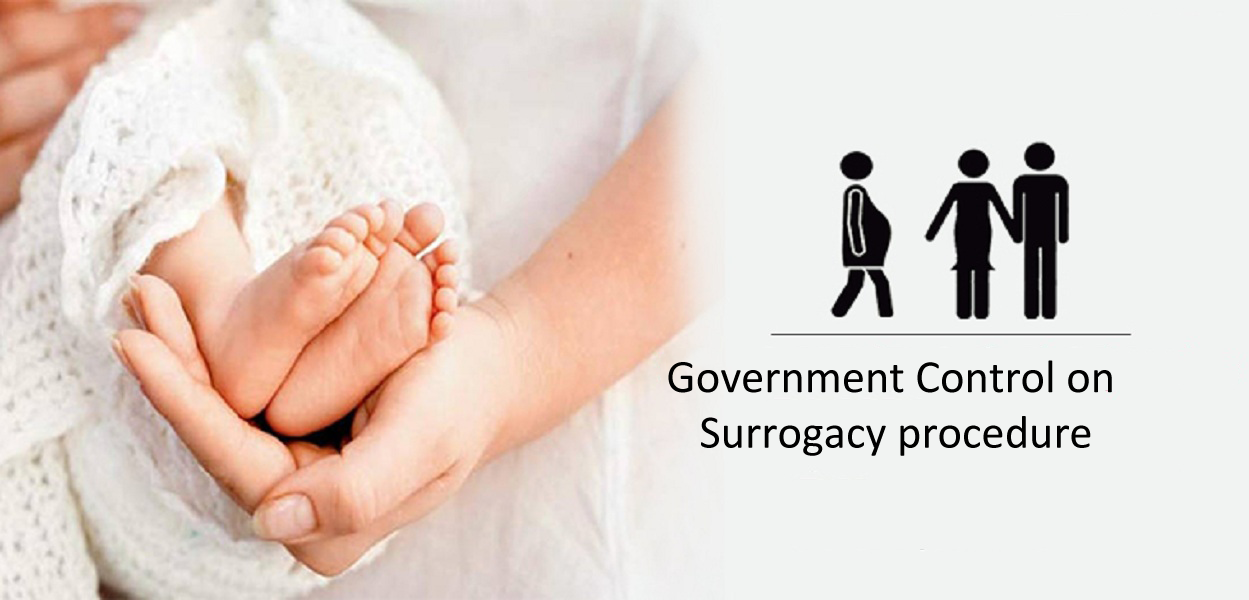Why Government Control is a must for Surrogacy procedure within any Country?
Over the years, Surrogacy has proved its prowess as a perfect solution for all childless couples across the globe. While numerous families find happiness in it, it also raises several ethical, legal, and social concerns. These factors make it imperative that surrogacy practices stay under strict government regulation. In the following sections of this post, we shall discuss why government Control is a must for Surrogacy procedure and the need for such control.
Why is government control a must for the Surrogacy procedure?
Key ethical considerations
Surrogacy presents difficult ethical questions at times. That said, the possible use of surrogate mothers, especially in nations with economic inequalities, raises one main issue. Without control, women from lower socioeconomic origins run the risk of being forced or monetarily pressed into surrogates. Government supervision guarantees that surrogates’ rights and well-being are safeguarded as well as that they are not exploited.
Safety and Wellness
First and most important are the health and safety of the child and the surrogate mother. Government laws can guarantee that all surrogacy-related medical treatments are carried out in licenced, recognized facilities. This covers frequent medical visits, availability of required treatment, and following health and safety guidelines. Moreover, effective medical supervision lowers the possibility of difficulties during pregnancy and delivery, therefore preserving the life of the surrogate as well as the baby.
Legal Clarity
Surrogacy is a complicated network of legal interactions including the child, the intended parents, and the surrogate. Clear legal frameworks defining the rights and obligations of all the engaged parties can be supplied by government control. This covers problems pertaining to parental rights, custody, and the legal child status. Clear laws guarantee that the intended parents may legally and effortlessly take custody of their child and help to avoid conflicts.
Stopping Exploitation and human trafficking
Preventing the exploitation and trafficking of women and children ranks among the most urgent reasons for government control. Without rigorous laws, surrogacy runs the danger of being utilized for illegal purposes including human trafficking. Strict legislation and monitoring systems let governments stop such mistreatment and guarantee that surrogacy is utilized just for its intended use of supporting families.
Protecting the Rights of Every Participant
Government supervision helps to guarantee that every individual engaged in surrogacy agreements has their rights protected. Included here are the child, the intended parents, and the surrogate mother. This translates for surrogate mothers into equitable pay, informed consent, and legal and medical support access. It gives intending parents peace of mind knowing their parental rights will be respected. Moreover, it guarantees for the child a distinct and protected legal and social standing.
Ensuring proper compensation
Paying compensation to surrogates is a divisive matter. Unfair pay policies, whereby surrogate mothers are either underpaid or exploited for profit, run the risk in the absence of control. Moreover, reflecting the physical and psychological pressures of carrying a child, government control can guarantee surrogates receive fair and sufficient compensation for their efforts. This guarantees that surrogacy is a mutually advantageous agreement and helps to preserve moral norms.
Ensuring Transparency
Surrogacy agreements must be transparent if we are to guarantee justice and stop mistreatment. From the choice of surrogates to financial plans and medical operations, government control might demand openness in all spheres of the surrogacy process. This openness guarantees that surrogacy methods are moral and fair and helps all the parties to develop confidence.
Handling Social and Cultural Issues
Particularly in countries where conventional family structures and responsibilities are well-rooted, surrogacy can generate a number of social and cultural issues. Government control can help negotiate these issues by establishing policies that guarantee ethical behaviour while nevertheless honouring cultural sensitivity. This covers problems with the child’s identification, the social standing of the surrogate, and the public view of surrogacy.
Dealing with International Surrogacy
International surrogacy introduces still another level of complication. Surrogacy laws vary among nations, which could cause legal disputes and questions about citizenship and parental rights. Government oversight guarantees that international surrogacy agreements and regulations are followed, therefore safeguarding the rights and welfare of all the participants.
Empowering Families
After years of trying with infertility or another medical condition, surrogacy is the last choice for many couples. By helping these families to grasp the process, their rights, and their obligations, government control may support and guide them. Counselling, legal help, and access to credible surrogacy companies and doctors can all be part of this support.
Minimizing Economic disparity
Many times involving large financial transactions, surrogacy can aggravate economic inequality without appropriate control. Rich people or couples might take advantage of the financial necessities of surrogate mothers from less affluent origins, therefore promoting unethical behaviour. Government control can apply equitable compensation policies and support systems to stop such exploitation, therefore promoting fairness and equality in surrogacy agreements.
Preserving the Future
Children born via surrogacy are entitled to legal and social recognition as well as to know their roots. Government rules can guarantee that should these youngsters decide to find information about their biological and surrogate parents in the future, they have access to it. This helps to protect the child’s identity and guarantee that their rights are honoured as they get older.
Managing Medical Risk Factors
Because fertility treatments and other medical interventions are involved in surrogacy, pregnancy and childbirth carry natural medical risks that can be exacerbated. Government supervision guarantees that every medical operation is carried out with the best of standards of care, therefore reducing risks and guaranteeing the health of the kid as well as the surrogate. This covers prenatal care, the method of embryo transfer, and the usage of fertility medications.
Promoting Ethical Gestures
Selection of surrogates, processing of genetic material, and child welfare are among the various ethical issues raised by surrogacy. Government rules can establish moral standards and guidelines to guarantee that every method of surrogacy is carried out with regard and dignity for all the engaged parties. This covers making sure the intended parents are ready for the duties of parenthood and that surrogates are totally educated and freely engaged in the process.
Encouraging public confidence
Stories of unethical behaviour, exploitation, and legal conflicts might shape the public view of surrogacy. By guaranteeing that all arrangements are carried out ethically, honestly, and legally, government control can help public confidence in surrogacy to grow. This helps to create a favourable view of surrogacy as a reasonable and compassionate choice for starting families.
Final words
Protecting the rights and welfare of surrogate mothers, intended parents, and children depend on government control ensuring the ethical, legal, and safe conduct of surrogacy treatments. That said, governments may prevent exploitation, provide fair remuneration, and encourage transparency by keeping rigorous control and regulation, therefore guaranteeing the integrity of the surrogacy process and helping the building of joyful, healthy families.




